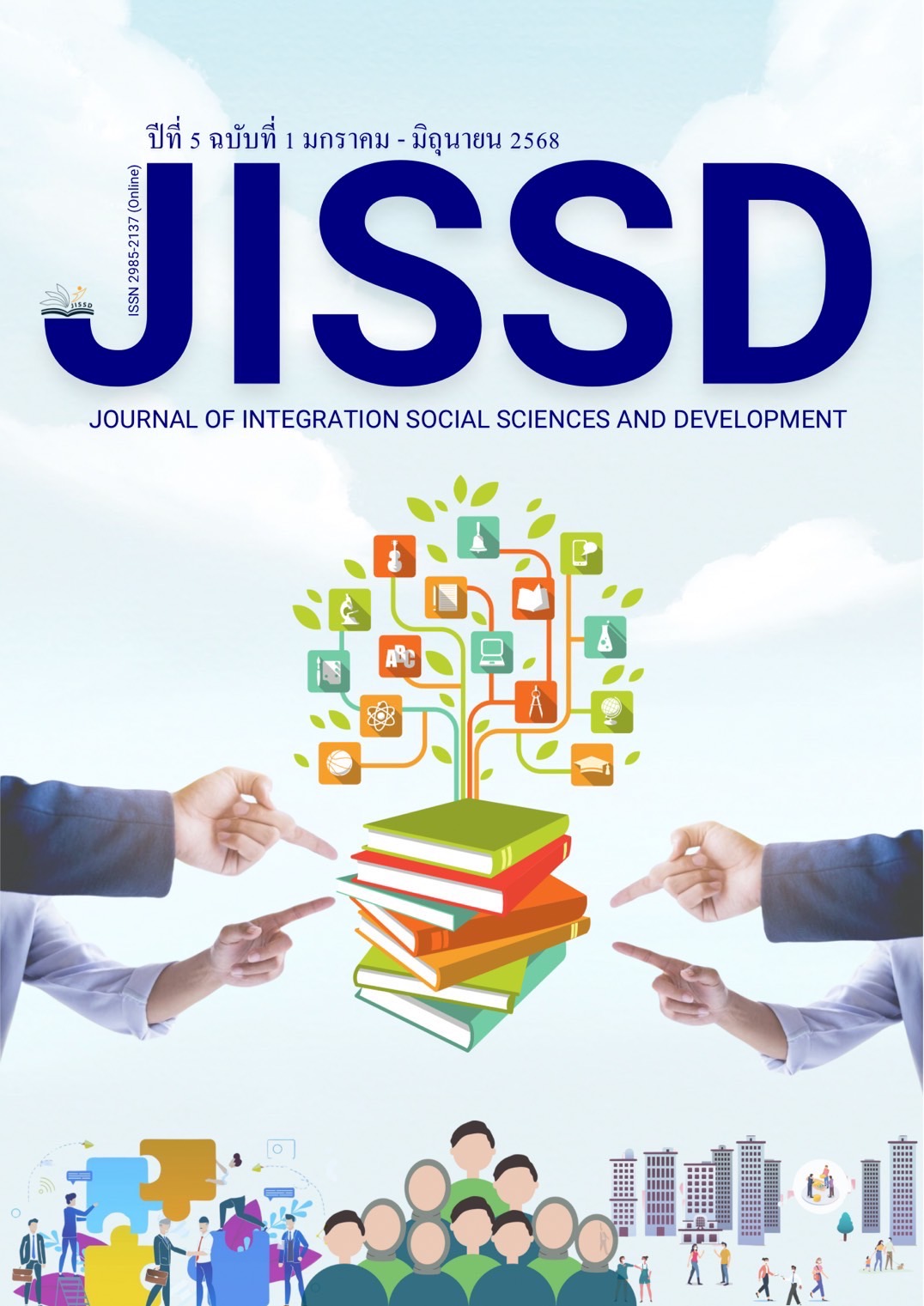Characteristics of entrepreneurs affecting the success of SMEs after the COVID-19 outbreak in Pathum Thani Province
Main Article Content
Abstract
This research aimed to study: 1) To study the characteristics of entrepreneurs that affect the success of SMEs after the COVID-19 pandemic in Pathum Thani Province, 2) To study the success factors of SMEs after the COVID-19 pandemic in Pathum Thani Province, 3) To study and compare the differences in the characteristics of entrepreneurs that affect the success of SMEs after the COVID-19 pandemic in Pathum Thani Province. The sample group was 400 SME entrepreneurs in Nonthaburi Province. Research results 1) Characteristics of entrepreneurs that affect the success of SMEs after the COVID-19 pandemic in Pathum Thani Province found that most respondents gave the highest level of opinion on their own identity. 2) Factors of success of SMEs after the COVID-19 pandemic in Pathum Thani Province found that internal processes had the highest average value. And 3) A comparison of the differences in the characteristics of entrepreneurs that affect the success of SMEs after the COVID-19 pandemic in Pathum Thani Province found that the characteristics of entrepreneurs The aspect of self-identity affects the success of the business, the aspect of customers and the characteristics of the entrepreneur. The aspect of innovation affects the success of the business. The aspect of learning and business growth has a statistical significance at the .05 level. And the characteristics of the entrepreneur, the aspect of risk-taking, the aspect of management, the aspect of consistency and eagerness to learn, and the aspect of eagerness to succeed do not affect the success of the business with a statistical significance at the .05 level.
Article Details
References
โชติรส สมพงษ์และสาโรช เผือกบัวขาว. (2562). รูปแบบการพัฒนาสมรรถนะผู้ประกอบการวิสาหกิจชุมชนในจังหวัด ประจวบคีรีขันธ์. วารสารวิชาการ มหาวิทยาลัยราชภัฏพระนคร, 11(1), 310-327.
ณัชชา เจริญศรี. (2563). ผลกระทบโควิด 19 ด้านเศรษฐกิจและโอกาสทางธุรกิจ. สืบค้นเมื่อวันที่ 2 มีนาคม 2568 จากhttps://www.storehub.com/blog/covid-19.
ทิบดี ทัฬหกรณ์และประสพชัย พสุนนท์. (2562). คุณลักษณะของผู้ประกอบการที่ส่งผลต่อความสำเร็จในธุรกิจร้านค้าบริษัททรู คอร์ปอเรชั่นจำกัด (มหาชน). วารสารอิเล็กทรอนิกส์การเรียนรู้ทางไกลเชิงนวัตกรรม, 9(1), 06-117.
ธนาคารกสิกรไทย. (2565). ครบเรื่องธุรกรรมการเงิน รู้จริงทุกธุรกิจ. สืบค้นจาก สืบค้นเมื่อวันที่ 16 มีนาคม 2568 https://www.kasikornbank.com/th/kbiz/article/pages/guide-for-sme-business-and-how-it-works.aspx.
ประคอง กรรณสูตร. (2538). สถิติเพื่อการวิจัยทางพฤติกรรมศาสตร์. กรุงเทพจุฬาลงกรณ์มหาวิทยาลัย.
พัทธมน ธุระธรรมานนท์และกังวาน ยอดวิศิษฎ์ศักดิ์. (2565). ปัจจัยธุรกิจคุณลักษณะของผู้ประกอบการและการสร้างความ ได้เปรียบทางการแข่งขันที่นำไปสู่ความสำเร็จของธุรกิจเบเกอรี่บนออนไลน์. วารสารบริหารธุรกิจศรีนครินทรวิโรฒ, 13, (1), 16-31.
ภัสสร เกษลักษณ์. (2561). ปัจจัยความสำเร็จของผู้ประกอบการธุรกิจให้บริการติดตั้งประตูหน้าต่างอลูมิเนียมในเขต กรุงเทพมหานครและปริมณฑล. (การศึกษาค้นคว้าอิสระปริญญาบริหารธุรกิจมหาบัณฑิต คณะบริหารธุรกิจ, มหาวิทยาลัยเทคโนโลยีราชมงคลธัญบุรี)
ศิวกร อโนรีย์. (2564). ปัจจัยที่มีผลต่อความได้เปรียบทางการแข่งขัน และความสำเร็จของผู้ประกอบการวิสาหกิจขนาดกลางและขนาดย่อมในเขตจังหวัดราชบุรี. (ดุษฎีนิพนธ์บริหารธุรกิจมหาบัณฑิต สาขาบริหารธุรกิจ, มหาวิทยาลัยศิลปากร)
สถิติข้อมูลผู้ประกอบการ SME. (2565). จำนวนผู้ประกอบการจำแนกตามจังหวัดของประเทศไทย ปี 2565. สืบค้นเมื่อวันที่ 9 มีนาคม 2568 https://www.smebigdata.com.
สำนักงานส่งเสริมวิสาหกิจขนาดกลางและขนาดย่อม. (2563). แผนปฏิบัติการของ สสว.ระยะ 5 ปี (พ.ศ. 2566-2570) (ฉบับทบทวน). สำนักนายกรัฐมนตรี.
อโนมา ภาคสุทธิ, ผ่องพรรณ เกิดพิทักษ์, และประสาร มาลากุล ณ อยุธยา. (2563). การเป็นผู้ประกอบการที่ประสบความสำเร็จ. วารสารจิตวิทยามหาวิทยาลัยเกษมบัณฑิตม, 11(2), 75-85.
Freser, M. and et al. (2000). Entrepreneurial orientation: A psychological model of success among southern African small business owners. European journal of work and organizational psychology, 14(3), 315 - 344.
Huarng, K. H., & Ribeiro- Soriano, D. E. (2014). Developmental management: Theories, Methods, and Applications in Entrepreneurship, Innovation, and Sensemaking. Journal of Business Research 67, 657–662.
Kaplan, R., & Norton, D. (1992). The balanced scorecard - measures that drive performance, Harvard Business Review, 70, 71-79.
Porter, M.E. (2005). The Competitive Advantage Creating and Sustaining Superior Performance. New York : The Free Press.
Saunila, M., Pekkola, S., & Ukko, J. (2014). The relationship between innovation capability and performance: The moderating effect of measurement. International Journal of Productivity and Performance Management, 63(2), 234-249


